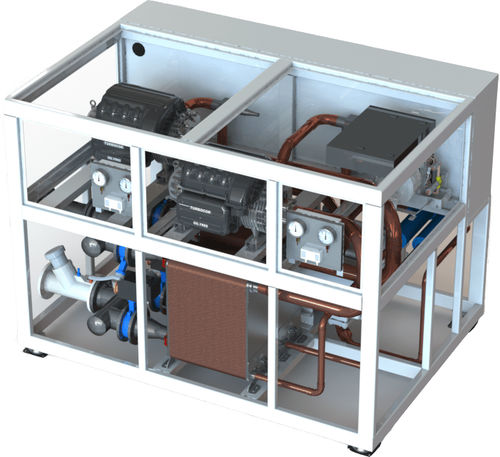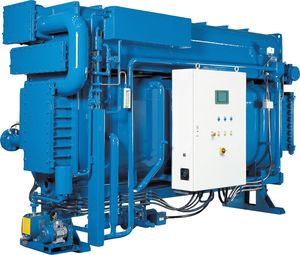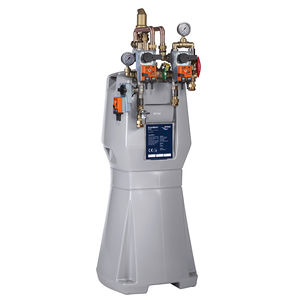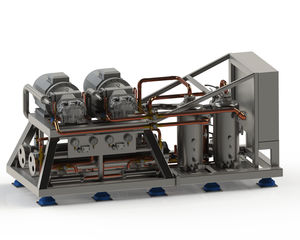
- Maritime equipment
- Interior fittings
- Ship water chiller
- Heinen & Hopman
Ship water chiller Turbocor
Add to favorites
Compare this product
Characteristics
- Options
- for ships
Description
Our Turbocor chiller is the most energy efficient type of chiller for the marine industry. Using the renown Danfoss Turbocor compressors in our chillers, we are able to reduce energy consumption by up to 50% compared to chillers using traditional compressors. Their oil-free operation allows for a long service life due to the absence of mechanical wear of surfaces.
TURBOCOR TECHNOLOGY
The Turbocor compressors feature an innovative technology and many advantages. Some of these advantages are: outstanding part load efficiency, oil-free operation, very low sound levels and a light-weight, compact design. The magnetic bearing technology contributes to the compressor’s efficiency, reliability, quietness and low maintenance. Furthermore, bearings, power electronics, compressor, chiller and expansion valve are all digitally controlled.
TURBOCOR CHILLER EFFICIENCY
An energy consumption reduction by up to 50%. How is this achieved? There are many factors contributing to the chiller’s high energy efficiency:
1. The bearing technology
Due to the absence of lubricating oil, hindering of heat transfer is prevented. Even a chiller with an oil content of 4% may lose 9% efficiency. The actual energy efficiency may be even lower when the chiller is overcharged with oil. The friction-free magnetic bearings eliminate the costs of those inefficiencies.
2. The motor technology
The motor is a synchronous permanent magnet brushless DC design. Its high-speed variable frequency operation affords high efficiency, compactness and soft start benefits.
Catalogs
No catalogs are available for this product.
See all of Heinen & Hopman‘s catalogsRelated Searches
- Handler
- Ship handler
- Bilge blower
- Ship blower
- Ship air conditioning system
- Air handler
- Handler with filter
- Boat air conditioner
- Monobloc air conditioning system
- Yacht air conditioner
- Yacht treatment system
- Ship water chiller
- Self-contained air conditioning system
- Ship fan coil unit
- Purifier treatment system
- Ships heater
- Ship fire damper
- HVAC system
- Ship HVAC system
- Split air conditioner
*Prices are pre-tax. They exclude delivery charges and customs duties and do not include additional charges for installation or activation options. Prices are indicative only and may vary by country, with changes to the cost of raw materials and exchange rates.






